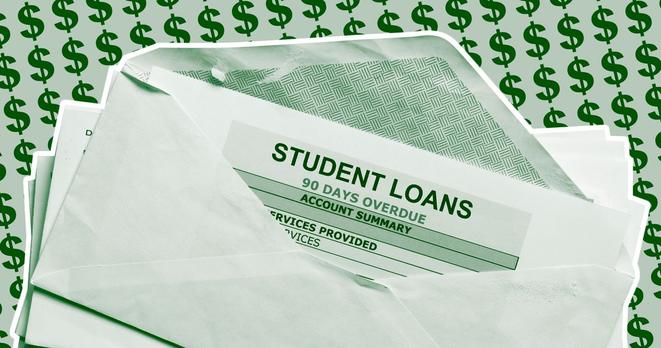Recent searches
Search options
#DebtCollectors
I mean, if we got rid of all debt, maybe this wouldn't have happened.
Just wipe the servers clean.
Data breach leaks SSNs of over 230,000 Comcast customers
https://www.theverge.com/2024/10/7/24264283/comcast-fcbs-data-breach-ssn-names
@rcade You might be surprised at how much fear and ignorance play into this.
But here’s the fun part: at least in the US, each call like that is worth possibly $1,000 to the person called. #FDCPA #DebtCollectors

Our #freedoms are being removed in sneaky ways. We all know of the big issues such as #NHS #dentists being too few, #medications people need to #survive being unavailable & #heating costs but there's smaller issues. Some of the most normal, everyday things have turned into #nightmares such as #parking, #parcel #deliveries, & battles with #private organisations with the# power to send #debtcollectors for absurd reasons.
https://www.theguardian.com/money/article/2024/aug/10/airport-parking-charge-passengers
#car #airport #fines #randsom #transport #HeatorEat
Southampton family left shocked after bailiffs wrongly demand £2,000 | Daily Echo
https://www.dailyecho.co.uk/news/24448345.southampton-family-left-shocked-bailiffs-wrongly-demand-2-000/
#Bailiffs
#DirectCollectionBailiffsLtdDCBL
#DCBL
#DirectCollectionBailiffsLtd
#PaymentPlanIgnoredByBailifs
#CourtOrderedPaymentPlan
#OneParkingSolutionsLimited
#Southampton
#DebtCollectors
You might think talking to debt collectors can help solve the problem, but it doesn't. It costs you two types of gold:
First, the gold that is your peace of mind. You'll never end a call with a debt collector, in a good mood.
Silence is golden.
And when you talk to debt collectors, you're giving up gold.
So many people tell us stories of the conversations they have with debt collectors on the phone.
Never once have they gotten to a happy ending.
It's always frustration, confusion, anger, and hopelessness.
And that's not even counting the information the debt collector is gathering on the call.
Decide on which goal is most important to you. Then and only then can you decide on the next steps to take.
Pick a goal, take aim, and start to kick.
Some of your goals may include:
1. Minimizing any money you might lose
2. Maximizing any money you might gain (yes, this is a thing!)
3. Stopping debt collection communications that harass and annoy
4. Protecting your credit report and credit score from negative marks
Most people don't know what to do next.
When debt collectors rear their ugly heads, the most common reactions are confusion, panic, or avoidance.
These lead to incorrect action, or worse, no action at all.
But when you figure out what your goal is, you switch from blindly reacting to acting with purpose.
Find someone who knows how to fight the fight you're in. Not someone who got lucky once or twice, but someone who does it on a regular basis.
Find out what they do, and do that. Or get them to help you.
Because finding the winning strategy starts with finding someone who wins.
If you're fighting debt collection, you need a strategy.
Ignoring it is not a strategy.
Complaining is not a strategy.
Embracing crazy theories from the darkest corners of the internet is not a strategy.
Finally, I decide whether I can and should ask for a jury.
→ Is is the type of case that can go to a jury?
→ Will a jury be more likely to give us the result we're seeking?
→ Has the other side already asked for a jury?
Once we write all that up, it's time to file it, serve the other side, and start discovery.
Sixth, I decide what relief I'm asking for.
→ Do we want the court to just dismiss the claim?
→ Do we want money or other relief on counterclaims?
→ Are we entitled to attorney fees if we win?
Fifth, I decide what counterclaims and cross might exist.
→ Did the plaintiff do something that makes them liable to us?
• (Like maybe an FDCPA violation)
→ Did some third party do something related to this case that makes them liable?
→ Will a counterclaim or cross be worth raising?
Fourth, I decide what affirmative defenses to raise.
→ Is there some "legal excuse" that we can prove to avoid liability?
→ Is there some fact that defeats their claim, even if they prove their case?
Third, I decide what to admit or deny. For each fact they allege:
→ Do we admit this fact because we KNOW it's true?
→ Do we deny because we believe it's not true?
→ Do we deny because it's not really a fact but a legal assertion?
Here's how I respond to a debt-collection lawsuit:
First, I analyze the complaint.
→ What claims are they making?
→ What facts do they need to prove?
→ What did they leave out?
Second, I decide on OUR theory of the case
→ Why should we win?
→ What do we need to prove or disprove?
One way to put on your own superhero cape is to learn about all the ways debt collectors break the law. There are 53 specific requirements debt collectors have to follow, and we teach you all of them, for free. And once you catch them slipping, you get to use it to turn the tables.
If you want our free course on the 53 ways debt collectors break the law, check out the link below.
They decide to take a stand. They learn about their rights and powers under the law. They get the right help from the right people.
And they turn what other people would consider a crisis into a triumph.





